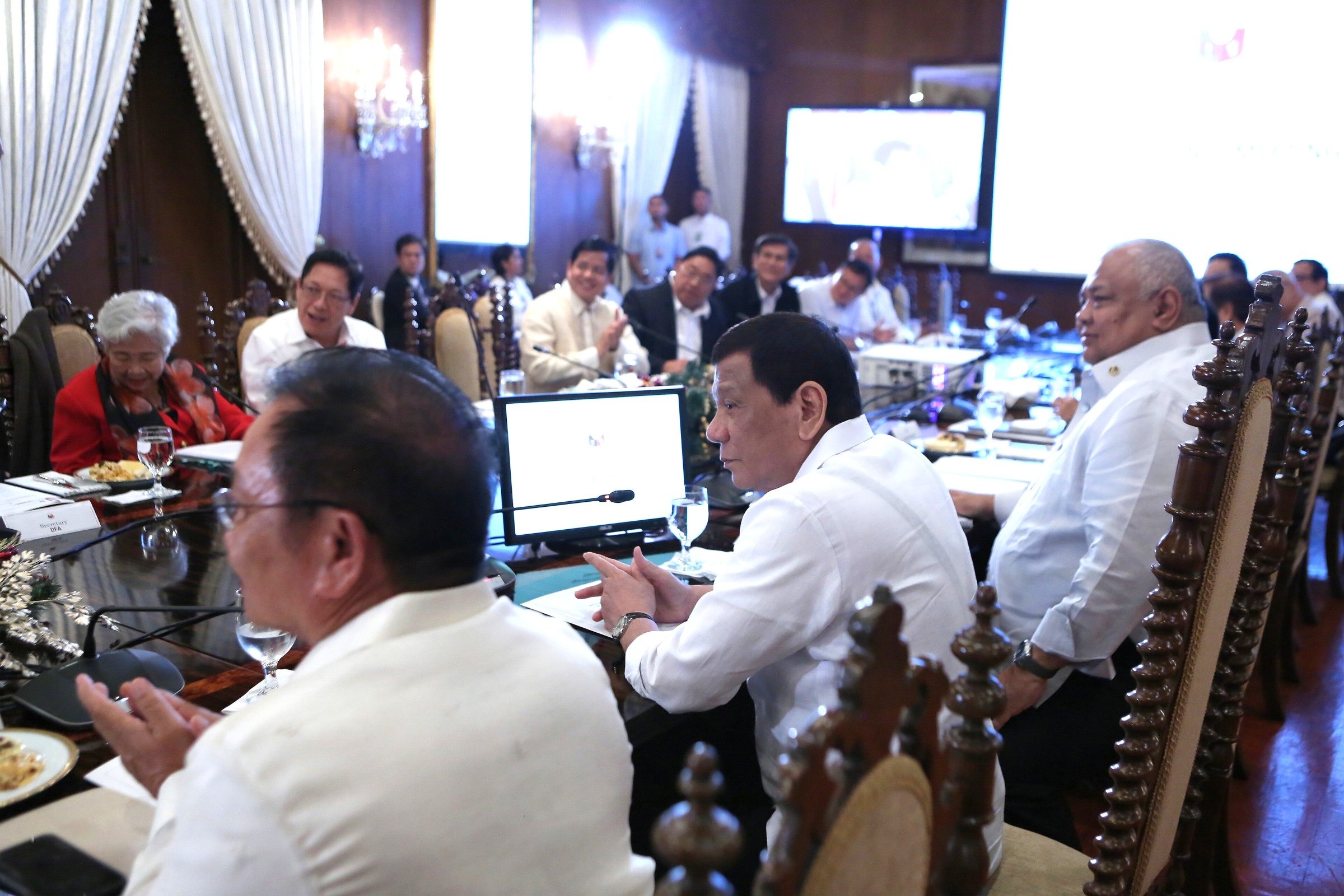SUMMARY
This is AI generated summarization, which may have errors. For context, always refer to the full article.

MANILA, Philippines – One reason why President Rodrigo Duterte wants the Road Board abolished is to allow a portion of the road user’s tax to fund Manila Bay rehabilitation, needs of hospitals, and programs for victims of the recent Tropical Depression Usman, Malacañang said on Tuesday, January 8.
Presidential Spokesman Salvador Panelo said in a statement on Tuesday that the topic was part of the agenda during the Cabinet meeting on Monday, January 7.
“The Cabinet also discussed that the special road funds can be used to finance hospital needs and the clean-up of the Manila Bay. A portion of the fund can also be used to benefit those affected by TD (Tropical Depression) Usman, especially those in the Bicol region,” Panelo said.
In a press briefing later that day, Panelo referred to “road user’s tax” as the “special road funds” he had referred to in his statement.
The fund already amounts to some P132 billion, he said. The Manila Bay rehabilitation would cost the government around P46 billion, said Panelo, based on the estimate of Environment Secretary Roy Cimatu. Panelo could not say how much of the road users’ tax would be used for hospitals and Usman victims.
Limit on road users’ tax
The law which created the Road Board, Republic Act No 8794, specifically states that proceeds from the road user’s tax or Motor Vehicle User’s Charge (MVUC) can only be used for the maintenance of roads and air pollution programs.
Section 7 of the law states: “All monies collected under this Act shall be earmarked solely and used exclusively (1) for road maintenance and the improved of the road drainage, (2) for the installation of adequate and efficient traffic lights and road safety devices, and (3) for the air pollution control.”
This limitation is why Duterte wants to do away with the Road Board, the body that manages the funds and decides what programs will be funded by it.
“Kaya nga ‘di ba gusto ni Presidente na i-abolish ‘yun. Pagka na-abolish ‘yun, the funds there will be placed in the National Treasury and then Congress will enact another law appropriating the funds there to specific purposes I mentioned earlier. Ganoon ang mangyayari doon,” said Panelo.
(That’s why the President wants to abolish it. When it is abolished, the funds there will be placed in the National Treasury then Congress will enact another law appropriating the funds there to specific purposes I mentioned earlier. That’s what will happen there.)
The Senate had asked Duterte to stop the release of any road user’s tax funds while Congress is deliberating on the Road Board abolition.
The Road Board’s days are numbered after the Senate approved a bill for its abolition and the House, which had earlier opposed the office’s abolition, finally yielded and vowed to pass its version of the bill.
Since the House and Senate have yet to come up with a reconciled version of the bill for Duterte’s signature, the Road Board remains in existence.
Talk of scrapping the Road Board came about after it was repeatedly accused of corruption. The Commission on Audit earlier found that the agency misappropriated P90.7 billion worth of funds from road user’s tax collections. – Rappler.com
Add a comment
How does this make you feel?
There are no comments yet. Add your comment to start the conversation.